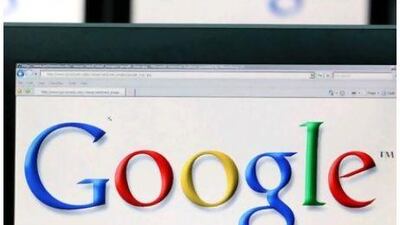Arabic web pages now account for 1.5 per cent of all information on the internet, with the number having been boosted by the uprisings in the region, Google says.
While still low given the number of Arabic speakers in the world, the proportion of Arabic content on the web is significantly higher than previous estimates of 1 per cent, according to a senior executive at the web-search giant.
"We know now that 1.5 per cent is Arabic," says Mohammad Gawdat, the managing director for southern and eastern Europe, the Middle East and Africa at Google, and the head of the company's emerging markets council.
"When we started around four years ago there was less than 0.6 per cent of the web content that was in Arabic. So from a trend point of view, you could say that it has more than doubled.
"How far should it be? 350 million people speak the language. It's the fifth-largest language in the world, so probably it should get to the point where it represents that."
The recent uprisings in the region has seen a significant boost in the amount of information being consumed and accessed in the region.
___________________________________
Abu Dhabi Media Summit - Catch up with all our coverage in our Industry Insights
___________________________________
"What you saw in the recent three months since the Tunisia events started is an extreme upsurge in two types of interactions with information: the generation of content on the web by users; as well as the consumption of newer forms of media and information," says Mr Gawdat.
"Arabs started to be much more interested in news-related content. [There was] tenfold growth."
There has been a surge in Google searches for the phrase "freedom of expression", and for names such as "Mubarak" - for the former Egyptian leader Hosni Mubarak - and "Libya" since the start of the uprisings, he adds.
"Mubarak became much more of an interesting topic to Egyptians than football," Mr Gawdat says. "If you look to compare them, you will see the trend basically flipping.
"Basically, the internet immediately reflected the pulse of the street."

